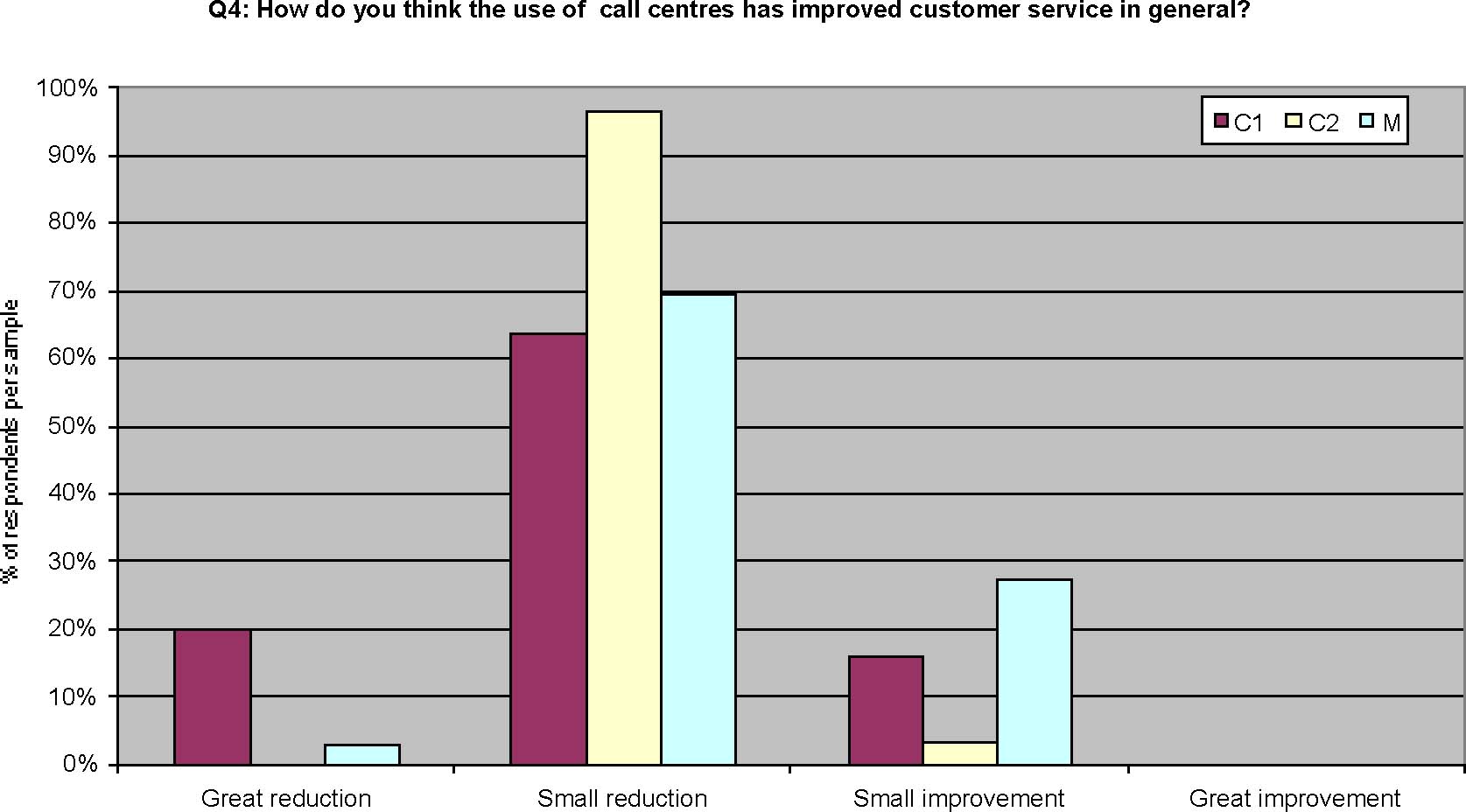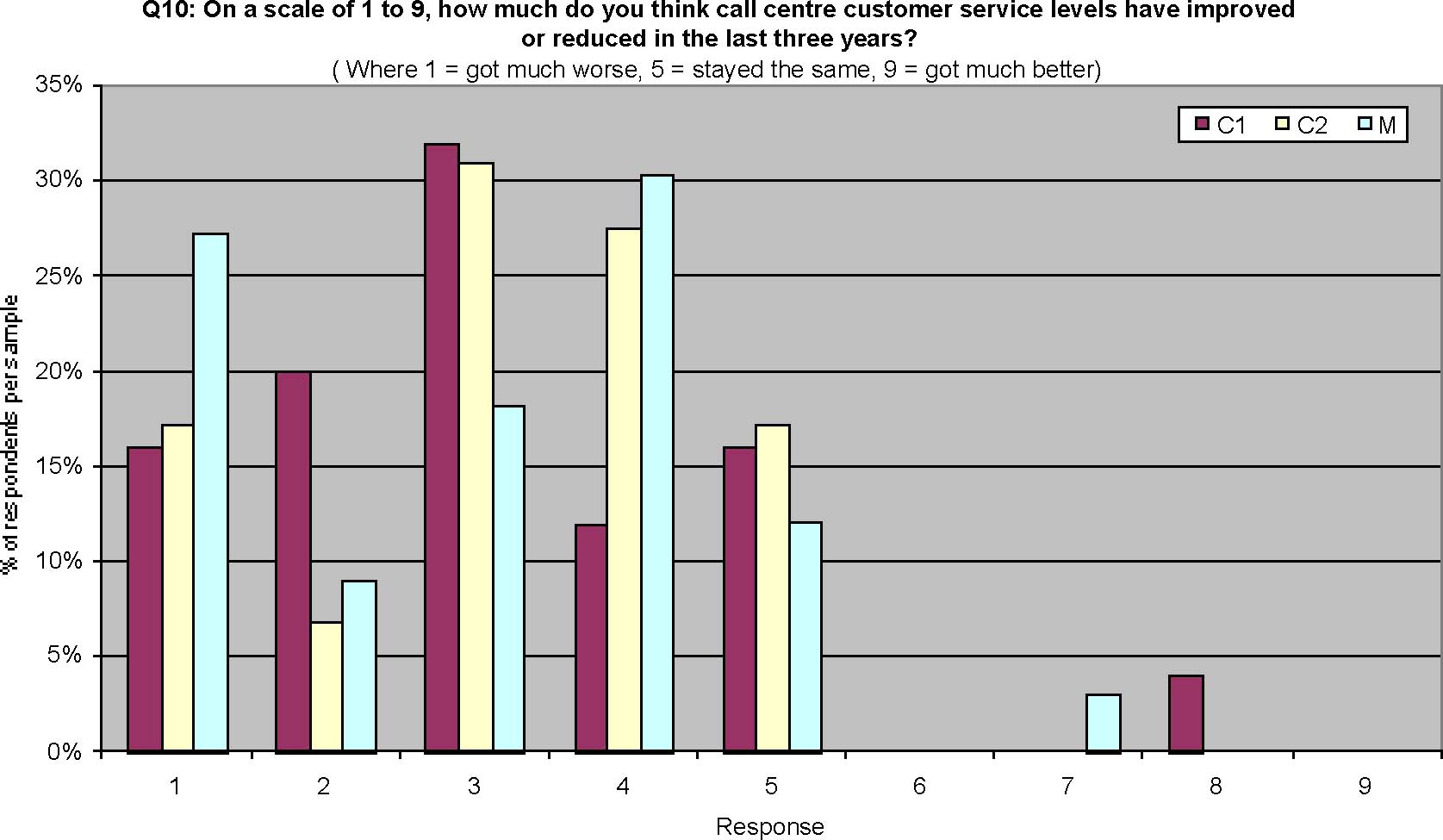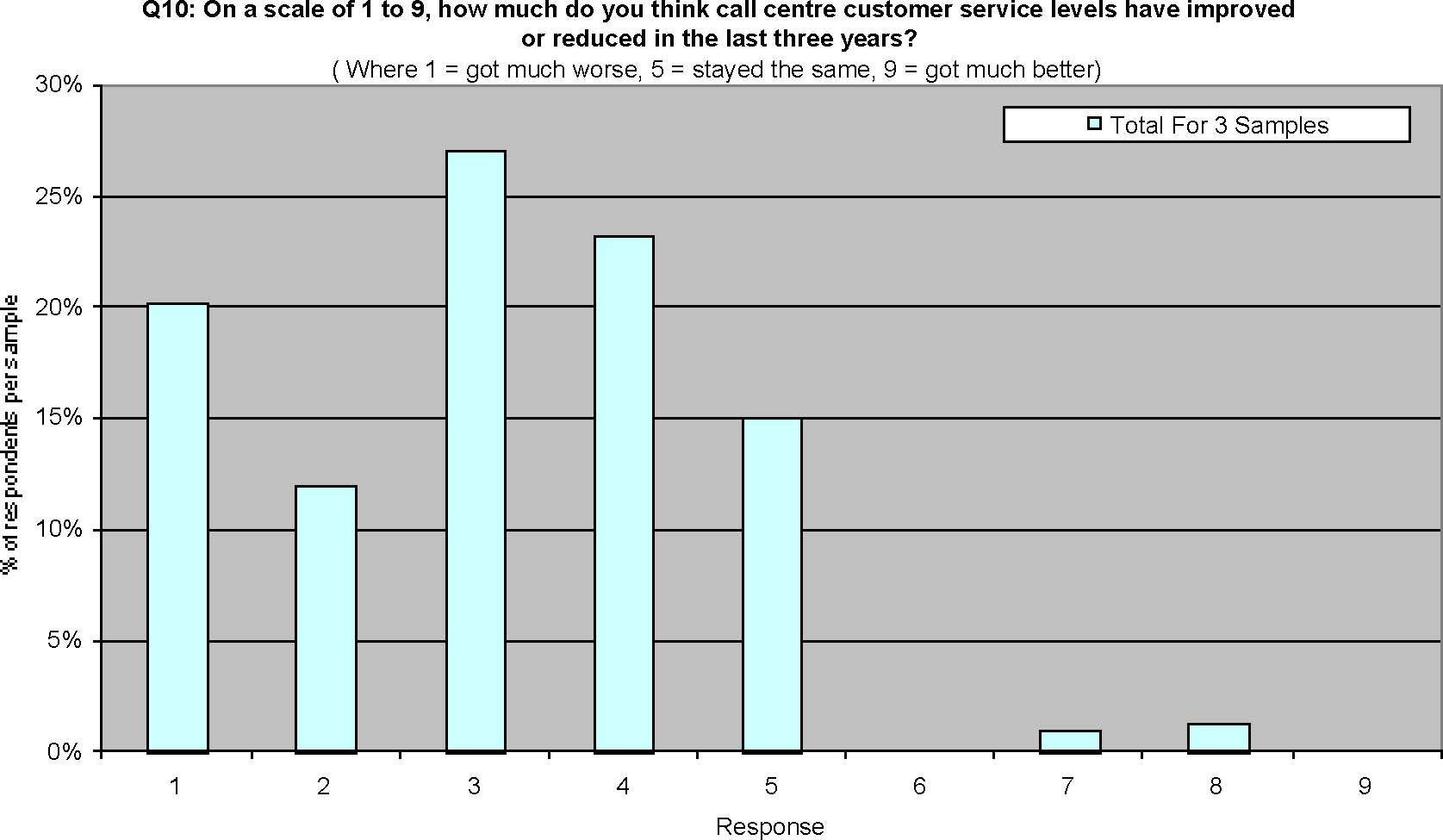Recently, we have undertaken a survey of attitudes to telecoms service providers' call centres within the UK, with a view to selling the outcome to telecoms operators and service providers. At the heart of our research was our perception that, in the last several years, overall service quality has reduced considerably from companies relying largely on call centres for customer contact. However, we wish to stress from the outset that our perception of reduced service quality is not related to call centre "off-shoring".
Our recall is that, several years ago, call centres offered callers greater:
- Product knowledge
- Flexibility
- Willingness and good grace
- Ability to close an enquiry without multiple call transfers
- Escalation channels should the need arise (rather than the current predominance of ad hoc 'buddy' peer arrangements entered into by staff expressly to prevent escalation).
While we have perceived the reduction in call centre service quality as being particularly bad in telecoms markets, the problem is, we believe, a generic one effecting most or all call centres.
In researching service quality trends, two separate measures are required:
- Changes in customer service quality since before call centres were introduced, and
- Changes in customer service quality after call centres were introduced.
The first chart below shows the first trend above, with the majority of respondents indicating a perception of a small reduction on service quality since before call centres were introduced. Three samples are represented on the chart, the names C1, C2 and M referring to two different locations and two different dates in one of the locations.
The second chart below shows the second trend above, that is, the reduction in call centre quality over the last three years. The majority of respondents thought quality had reduced, with about a third perceiving quality had become much worse. For simplicity, a third chart has been added showing the consolidated responses of the three samples.

Source: Telecommunication Ltd, 2004

Source: Telecommunication Ltd, 2004

Source: Telecommunication Ltd, 2004
From the charts above (and from other data we collected on call handling indication a general dissatisfaction), you might expect users to consider the quality of a particular supplier's call centre when making purchasing decisions. Yet, surprising as it may seem, there was no clear correlation (in statistical terms) between responses to the question "Would the quality of a company's call centre affect your decision to use that company?" and the responses to the questions on call centre quality and quality trends.
In undertaking our survey, we got a clear answer to our primary question and a fairly clear answer to our secondary question.
Regarding the primary question, that of whether the public feels that customer service quality has been negatively impacted by the predominance of call centres, the answer is a resounding "Yes".
As regards the secondary question, of whether or not the public is willing to penalise providers of poor call centre service quality by switching suppliers, the answer is a fairly clear (but not resounding) "No". This result could partly be explained by a number respondents feeling that there was no alternative to using call centres, and that they had to 'grin and bear' the poor quality. However, such a view does not take account of the varying quality of call centres, nor consumers' ability to influence the market.
Our overall conclusions from the research are that:
- Telecoms users believe that call centres provide a poor service that is getting worse
- Providers of good call centre service quality are not rewarded for their effort, and
- Poor call centre operators are not penalised for their lack of effort.
We believe this is a damning indictment of the UK telecoms industry and hope this situation will not endure in the long run. We also hope that the public becomes more discerning and adopts 'people power' by moving their business away from operators of poorer quality call centres.
The full call centre service quality report will be available from DRI in early Aug., price JPY 175,000.

 世論はコールセンターのサービス低下を唱える
世論はコールセンターのサービス低下を唱える